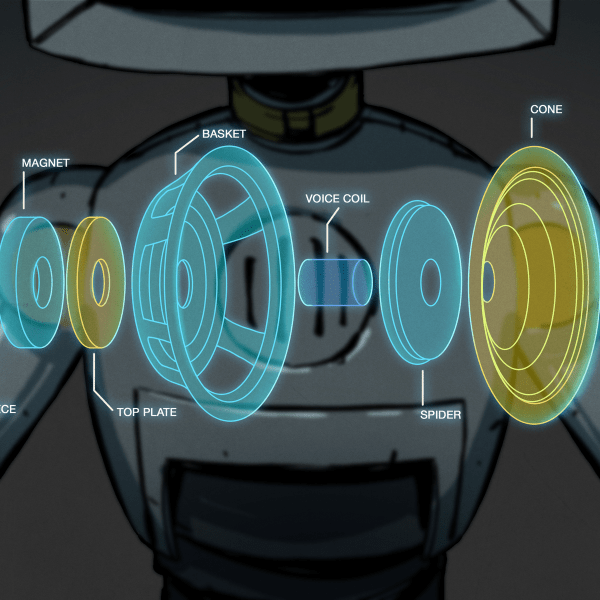
The Washington Post is reporting that the shutdown of one hosting company has caused the total volume of spam to drop by 2/3rds. The company in question is McColo Corp. Both Hurricane Electric and Global Crossing pulled the plug today after a damning report revealed a number of illegal activities happening on McColo’s servers. McColo already had a reputation with the security community. When contacted about abuse, the company would often shift servers to new IP ranges instead of shutting them down. Although not the main source of spam, the company was host to many botnet control servers and phishing sites.
[photo: mattdork]
[via Waxy]















WOW!
Not 2/3 but 75% or 3/4.
But this is of “all” spam, all as in all spam world wide. And not just email spam but also phishing sites. Thats awesome! I hate those sites that open a dialog and start talking and you cant close them, and the fake sites. Now they have to make sure that they do not come back.
Oh and here’s proof to you non-believers http://www.spamcop.net/spamgraph.shtml?spamweek
The article says the site was shutdown Tuesday and the graph has a dive the the end of Tuesday.
i believe this because my spam folder on one of my accounts didn’t move
This is great!
whoa, maybe that’s why a 99% of the bs spam i get stopped suddenly….. i hope those at McColo get herpes, i really do.
Holy shit. This is big, monumentally big. It’s like a war just ended.
I think this is a fantastic blow. I hope this will also lead to the take down of creators of malware like AV2008.
wow, with looking at the spamcop.net link i’m totally amazed. thank goodness for that!
i do wonder how long it will last for…
all that spam was coming from one company? they better get sued from here to the moon. and jailed.
My local provider is very good filtering spam. 1-2 a week. But on Nov 12 I got over 10 spam messages.
This is new only to the unwashed masses. Most of us in Computer security knew of their activities for nearly a decade. I had entire IP blocks dedicated to that company.
but now how will I find out how to stimulate her deep pink grotto?
Bastards had it coming to them, but getting rid of spam is like trying to rid the world of the fantasy terrorism Americans like to preach on about. Most people don’t know what the hell they’re talking about in regard to the problem.
A take on Martin Niemöller’s poem,
“They came first for the spam servers, And I didn’t speak up because I wasn’t spamming;
And then they came for the “terror” servers, And I didn’t speak up because I wasn’t a “terrorist”;
And then they came for the religious servers, And I didn’t speak up because I was agnostic;
And then . . . they came for my server . . . And by that time there were no sites left to speak up.”
Takeing down a hosting company because its customers break the law seems fine. Taking down a company because it serves people/sites you hate is very dangerous. The freedom that gives spammers the ability to operate also gives sites like this and yours the ability to operate.
Well, as blizzarddemon mentioned, this is just a temporary setback for those who send spam. They’ll find some other place to set up shop. Then that one will be shutdown, etc. So, expect that graph to start ramping back up sometime soon.
@ Josh, spamming is a crime, jailable evenn
@josh:
They were hosting child porn.
@ josh:
Doesn’t contract law cover this sort of thing?
We haven’t passed any US Network Neutrality legislation (yet). So, -assuming that they don’t have a contract that says otherwise- any network operator can legally cut off anyone else whenever they feel like, right?
Inbound spam traffic to our Barracuda went down about 50% yesterday from the day before (6000 from an average of 12000-ish). Only showing around 4000 so far today. It’s working. It’s really working.
The phishing sites will be back up as soon as they get their domains transferred. The armies of zombie spammers might be hit a little harder, but they’ll recover. The guys who build these networks are not stupid, I’d be really surprised if you can disable them by shutting down control servers belonging to a single host.
There will be little lasting effect.
THIS IS SPAM!
THIS IS SPAM!
THIS IS SPAM!
LOLL kidding!
Blizzarddemon:
I guess 9/11, Madrid, London, and Glasgow were all victims of fantasy terrorism.
tf – the Glasgow thing was a pathetic attempt at terrorism. They managed to set themselves on fire, then get punched in the face.
It could’ve been worse, but it somehow seems wrong to lump it in with real terrorist attacks with real casualties.
I think that this really isn’t a solution because it just cut off the head to the spambots, the body (being zombie computers) need to be fixed. It doesn’t really matter if the people who were in control of the spambots had their internet disconnected because they’ll eventually find a new source and just reconnect to the zombie computers. If people really want a solution, they themselves need to take better care of their privacy because I’m sure there was a point in time where a computer you owned turned into a zombie.
I know this is an old topic, but just check out http://www.spamcop.net/spamgraph.shtml?spamyear and see how it was just a minor setback to spammers.
In seemingly unrelated news, the economy of Nigeria has suffered a major setback, but the one bright spot is the funeral business due to the increase for wealthy widowed tourists.